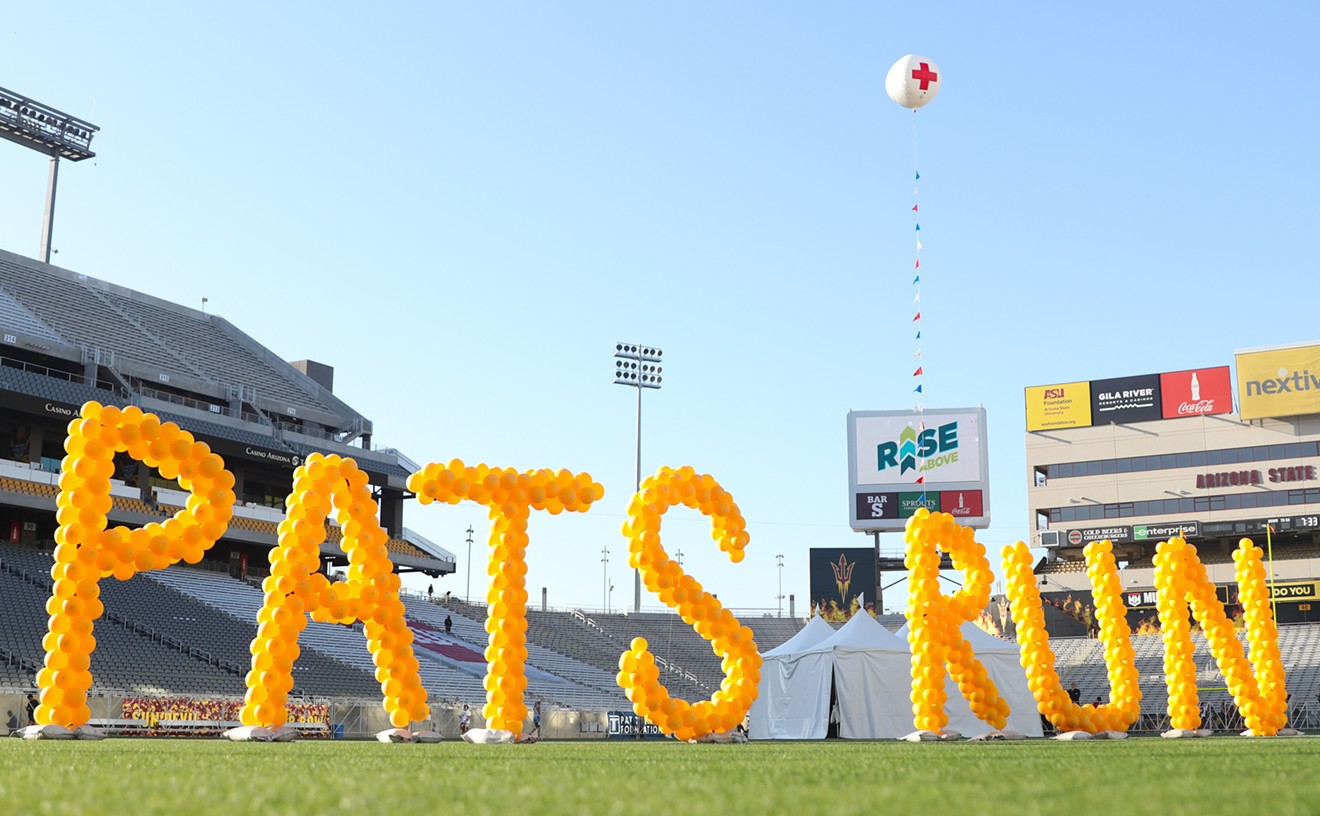I called my friend Nathan the other day and asked him to join me in seeing Nearly Naked Theatre's new production of Equus.
"No," he told me, without hesitation. "The production they did 10 years ago was perfect, and if this new one isn't, it will ruin my memory of the original."
I had the same fear. Because Nearly Naked's 2003 production of Peter Shaffer's psychological case study was not only excellent, it changed the way many of us looked at local community theater. We'd seen small, quirky troupes knock it out of the park from time to time, but artistic director Damon Dering's darkly intense production elevated our expectations of what a small avant-garde house could produce — then followed it up with several years of equally stunning productions. The financial and critical success that followed for Nearly Naked had a ripple effect: Other small companies (most notably the already-excellent Stray Cat Theater) stepped up their artistic game, while playhouses known for more mundane fare began taking creative chances. (Phoenix Theater has since presented Avenue Q and, in a co-production with Nearly Naked, Spring Awakening.)
I needn't have worried. If this exceptional new Equus suffers, it's only by comparison with the impact made by the company's earlier yowza production. Shaffer's psychosexual story of an emotionally ill teenager who has maimed a herd of horses still packs the same emotional wallop and, as performed by Dering's gifted ensemble, unfolds with real intensity.
Equus tells the story of Martin Dysart, a middle-aged psychiatrist whose new client is a 17-year-old named Alan Strang who's been institutionalized after blinding six of the horses at a stable where he works. As Dysart uncovers the boy's tragic motivations — religious zealotry and sexual confusion, mostly — he comes to envy the boy's zealous faith in his own crazy illusions.
Despite the opportunity for scenery-chewing melodramatics, each of the performers, under the carefully calibrated direction of Dering, neatly conveys their own piece of this peculiar puzzle. Devon Nickel is terrific as the boy, who moves like a frenzied animal one moment, a graceful ballerina the next. Laura Durant (the only cast member repeating her role from the 2003 production) is convincing as the desperate and heartbroken mother, and Christopher Bradley has some effective scenes as the boy's father, whose own backstory provides one of Act Two's better huzzahs. As the doctor, David Weiss is both a fine narrator and a sterling centerpiece for the dramatic goings-on that surround him.
The moody abstraction of Weiss' set design, based on Gregory Jaye's original model, provides a perfect backdrop for gloomy flashbacks and narrative staging, and Jay Templeton's elegant, metal-sculpted horse heads provide the polish to an already well-buffed production. This Equus is both a theatrical triumph and a reminder that this small, arty playhouse can still set a standard of excellence.










